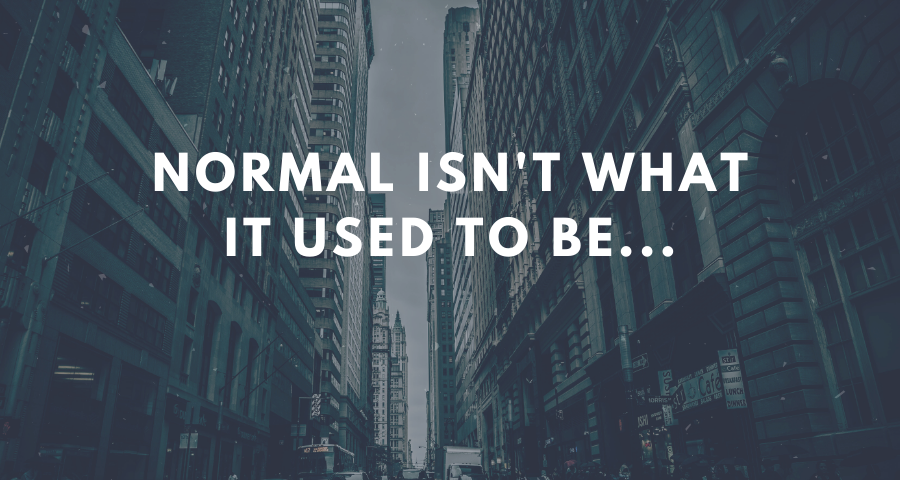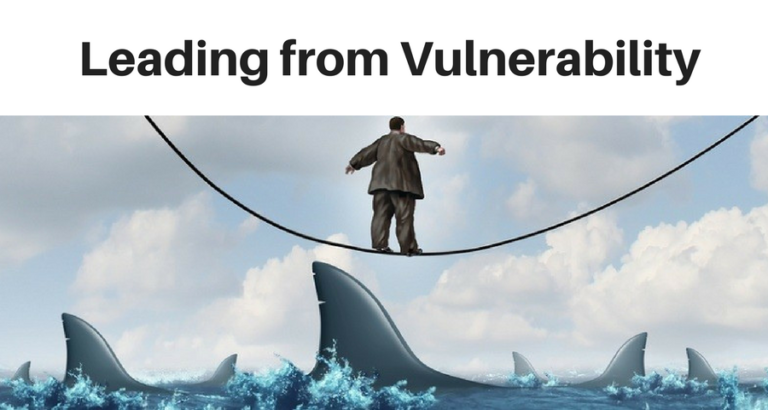Normal isn’t what it used to be…
Perhaps the most commonly used phrase of the last year has been ‘when things go back to normal’. But lets face it, we’re never going back to how things were, because if and when the pandemic does abate, we cannot and arguably should not erase the experiences of the last year.
During this time working around Covid has moved some aspects of work culture forward in huge leaps and forced us to question some of our most entrenched beliefs.
Many of us learned that there is more to life than work; to question our purpose, lifestyle and re-evaluate what is important to us. In many cases it has provided an opportunity to reconnect with ourselves and decide how happy we are with our lot. For example, the founders of one of our clients have decided to retire and hand ownership to the employees.
But also, out of sheer necessity, many of yesterday’s beliefs about the working environment have been challenged and for some at least, abandoned.
Notably something that has been evident for decades – working flexible hours from home really does get the job done… and done well. But having it enforced for months at a time also highlights that some of us need regular social interaction or we go mental. Some, not so much. So everyone’s need is a little different. I fall somewhere in the middle, so all of one or the other is likely to lead to a high level of stress for me.
Also we’ve learned that no-one dies if you wear a t-shirt to a meeting. A lot of the formality – the masks we wear in the working environment – the defensive facades that block authentic human connection – have dropped and we can still do our jobs brilliantly. The wearing of a suit and tie seems strangely to have no bearing on my professional capability. Who knew? But on the flip side some of us are uncomfortable without the protective shield and status offered by the crisp cut of Saville Row’s finest artisans.
We learned that kids and family can co-exist with working life and the world does not end as a result. But this can also be a multitasking stress nightmare especially when one gender might bear a larger brunt than the other.
So I guess for every stride towards more liberal working methods there is also a pull for the more conservative days. Unsurprisingly perhaps, we might start to realise that different people, having different personality types, have different needs.
For example, if I have a preference for introversion and thinking, I might prize being left well alone until I’m ready to engage with others at a level I’m comfortable with, perhaps communicating indirectly through messaging apps. If however I have a preference towards extraversion and feelings, then I might regularly need people around me with lots of direct verbal interaction. Neither is wrong, we’re just different.
Typically one culture might dominate in an organisation and ultimately one group or the other will feel neglected and possibly even unwelcome. This will unsurprisingly impact their happiness and their performance negatively.
However, the pandemic has indirectly granted us a golden opportunity to put all this on the table and openly discuss what we want work to look like after Covid, and… why not try and get it right for everyone and consider all of their differing requirements?
Many of our clients have co-developed clear strategies for returning to the new normal. For example one large acoustic consultancy has decided to close their London office and are replacing it with a much smaller flexible shared office that provides some space for those that like to work in a workplace more regularly and also some functional aspects such as meeting rooms. They are allowing people to choose how and where to work and, because they are aware of how important collaboration and cohesion are culturally, they are constantly trying to develop fresh ways to stay connected that work for the team.
Another international client in hygiene products has halved their office size and moved to desk sharing. Other clients including a prominent educational tech company and a Brighton based third sector organisation have done the same. One tech business has even redefined their business to have ‘no central location’.
There is a theme developing as you can see. There are already apps starting to appear such as ‘Aceplace’ (sadly yet to be rolled out in the UK) which allows you to find places to meet based on your requirements, amount of time needed and number of people, but the venues are hugely varied. Anything from welcoming hotel lobbies to cafes with a private meeting room to conference venues. Once we become decentralised we still need places to meet and why not pick somewhere nice and maybe have a coffee or lunch in the process? Shouldn’t work be able to be like that?
So, given that the vaccine rollout indicates we’ll be mainly inoculated by the autumn, we’ll be confronted with the new ‘normal’ within a few short months. But what will that look like for you? Whatever you return to will not be the same because expectations have moved on.
Our clients have been working creatively and most importantly, collaboratively towards solutions that work for everyone in the organisation.
This is because rather than a few execs deciding what they like and raining it on the rest of the team, they really value and understand the benefits of inclusion. Given that many are also now employee owned, decisions like these are taken democratically, so all voices are represented. As many have been through the Insights Discovery process there is extensive consultation and understanding of the diverse needs of their teams in advance.
There is much to recommend these approaches if you are trying to make a workplace that gets the best from everyone and attempts to meet the diverse needs of the team. But also you are unlikely to get it right first time unless you are very lucky, so being nimble and adopting an ‘Agile’ approach will help you adjust your solutions until they are fully fit for purpose. ie:
- Try something,
- Understand why it works and why it doesn’t
- Try fixing the latter
- Try again.
- Iterate until it’s good enough
I personally believe that getting ahead of this curve will ensure that your organisation’s working culture is much closer to optimal when the restrictions are finally relaxed and now you have an unavoidable reason to talk about it.


